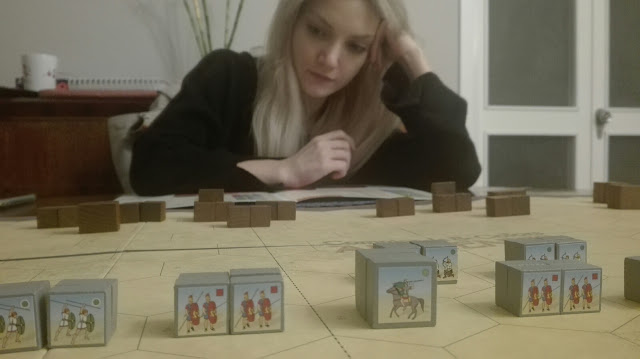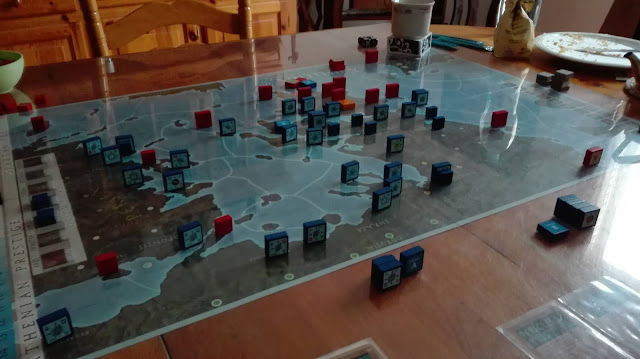Commands & Colors: Ancients. The battle of Akragas

Siracusano: Alex Isabelle Cartaginese: Laura Beltrami Battle of Akragas, aka Agrigento, 406 BC. The Carthaginians have besieged the city of Magna Graecia, and have divided their troops: one part of the army holds the city, while another is somewhere else, ready to intervene if the Syracusans try to send some troops in defense of Agrigento. Which happens. The Carthaginian army is largely made up of mercenary auxiliary troops not particularly well organized. The Syracusans one are instead elite troops, which deploy a fair amount of heavy infantry right on the right side, the slightly scarcer one of the Carthaginian line, which also can count on the availability of war chariots, terrible in skirmishes. The Syracusans choose to divide the battle line in two: while the elite troops advance inexorably but slowly towards the weak side of the Carthaginians, on the left side will remain support troops. In truth, the latter turned out inferior to the Carthaginian soldiers, who put pressure on th...
